Beirut Synagogue Gets a New Lease On Life
Published: November 09, 2009; Der Spiegel – Lebanon’s Jewish Community.
By Daniel Steinvorth,
The Jewish community in Beirut keeps shrinking due to emigration and mortality. But the few Jews who remain hope to strengthen their ties by renovating a historic synagogue in the city center.
The old French residency on Shari al-Jahudi, or Street of the Jews, has seen better days. Feral cats roam the ground floor and the floors are covered with rubble and debris. A yellowed poster from the civil war hangs in the stairwell. Noth that this is an unusual building by Beirut standards. There are near-derelict structures on every street corner, buildings riddled with bullet holes that look as if they had just been the scene of house-to-house combat. The homeless live in many of them, often alongside refugees from Iraq. But the only residents of this particular building are cats — and Lisa Srour.
“Welcome,” says a heavily made-up woman with red hair, as she opens the door. “Please excuse the mess, but this is my home. I have no other place to live.”
Madame Srour, a rather quaint woman in her mid-60s, is the last remaining Jewish woman in her neighborhood in downtown Beirut. A genuine left over. Previously several hundred Jewish families lived around here. There were synagogues and a Talmud Torah school, a traditional Jewish primary school, the families were part of a multicultural Lebanon. That was until the State of Israel was established (when Lebanon’s Jewish community consisted of 24,000-members in 1948) only 100 kilometers (63 miles) to the south and Lebanon’s Jews were increasingly seen as part of that state. Those who did not flee after the Six-Day War in 1967 left in the mid-1980s, when 11 Jews were murdered during the course of the Lebanese civil war.
Urban Vision: ‘A Hong Kong On The Mediterranean’
Today most of the houses on Shari al-Jahudi, a street abandoned by its residents and destroyed by war, have been bulldozed and replaced with a string of sandstone-colored luxury apartment buildings, complete with cafés and shops. They have become part of the “Solidere” as Beirut residents call their refurbished downtown; It is named after the multi-billion dollar real estate development company founded by former Lebanese Prime Minister Rafik Hariri, who was assassinated in 2005.
After the country’s civil war ended, the former prime minister had three-quarters of the devastated city center torn down and rebuilt. Hariri’s vision: “a Hong Kong on the Mediterranean,” a place, unencumbered by the burden of history, which would attract tourists and businesspeople alike. But his critics see the new Beirut as something more nightmarish. One architect described the new city center as “brochure Beirut,” criticizing it as a characterless place with absolutely no connection to the past.
It’s a little odd that Madame Srour’s apartment block has somehow been spared from the urban renewal project. Even a construction worker standing outside the building doesn’t know when the last few derelict buildings on the street will be torn down.
As for Madame Srour, she says that she intends to wait and see what happens. What else can she do? She says that she has spent most of her life in this building, where her parents rented an apartment. The civil war raged, her parents died and her brothers emigrated. But Srour was unwilling to turn her back on her homeland — not even in 1982, when the Israelis marched into Lebanon and the Prime Minister Menachem Begin offered Israeli citizenship to the remaining Levantine Jews. “Why should I have accepted that?” Srour asks. “I am a Lebanese woman, and that’s what I’ll remain.”
A Synagogue As Part Of An Open And Cosmopolitan City
It is thought that there are between 50 and 300 Jews still living in Lebanon, where they are one of 18 recognized religious communities. But their numbers are dwindling as the population ages. For this reason, the local Jewish council has begun to address the question of how the community can win this battle with time. Would the resurrection of a synagogue in the area help?
Which is why at the beginning of 2008, the larger community of Jewish expatriates revived an idea of Hariri’s: Why not renovate the Maghen Abraham Synagogue in downtown Beirut — the city’s oldest and most important synagogue — and make it usable once again? It would also add a cultural component to the otherwise soulless Solidere. And it would certainly fit with Hariri’s original concept. A synagogue would only emphasize Beirut’s openness and enhance the cosmopolitan image of a city where minarets and church towers already sit side by side. However, the funding for the synagogue would need to come from the Jewish community itself.
But How Does Hezbollah Feel About A New Synagogue?
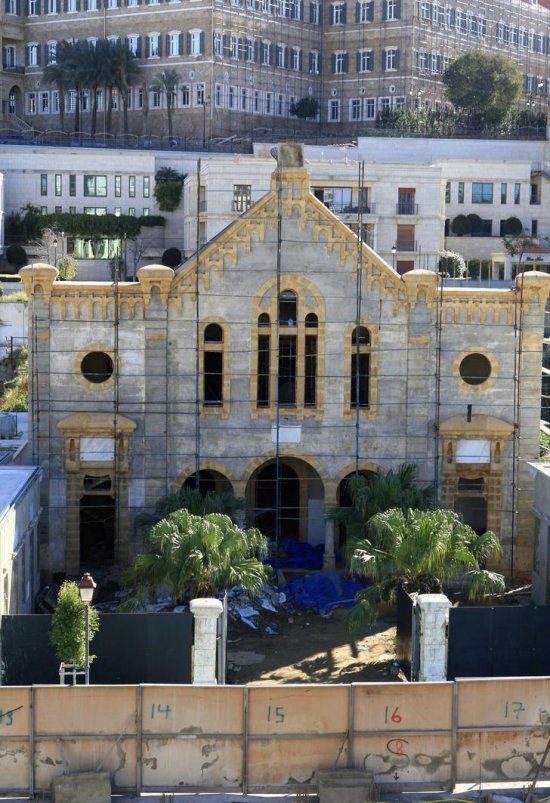
Beirut's Maghen Abraham Synagogue opened in 1926 in Wadi Abou Jmil, the city's Jewish quarter, located on the edge of west Beirut near the Grand Serai palace, where the government meets, and within walking distance of parliament. Lebanon then was something of a haven for Jews, some of whom were the descendants of those who had fled the Spanish inquisition; it later served a similar role for refugees from Nazi Germany and in 1948 after Israel's creation. (http://yalibnan.com/)
Hariri’s successor, Fouad Siniora, had no objections to the plan. But how would the radical Islamic group Hezbollah, and Israel’s sworn enemy, feel about it all? For some time now, no political decisions have been made in Lebanon without the approval of the influential Shiite militia. In September 2008, a spokesman of the organization said: “We respect Judaism, just as we respect Christianity. Our only problem is with Israel.” And so, in July 2009, the renovations began.
For more then 30 years, the Maghen Abraham Synagogue has been allowed to decline into ruin. In 1976, the last rabbi practicing there moved the Torah scrolls to a safe place and locked the building up. Today the synagogue is surrounded by high rises and construction cranes. A long prayer hall, flanked by two arched passageways, gives some idea of what it must once have looked like. Meanwhile, construction workers have built a tall fence to protect the building from the curious and security guards have also been posted to watch over the site.
Even though the synagogue is only a few minutes from her home, Madame Srour hasn’t been there for a long time. She says she simply cannot bear to look at the ruins. Somewhat ironically, Israeli pilots bombed the house of worship because they believed that Palestinian weapons were hidden there.
The newly renovated synagogue is expected to reopen soon but it seems unlikely that Madame Srour will attend the opening ceremony. She prefers to live with her own memories of the place, memories that she can only share with her cats today.
Translated from the German by Christopher Sultan



 RSS
RSS

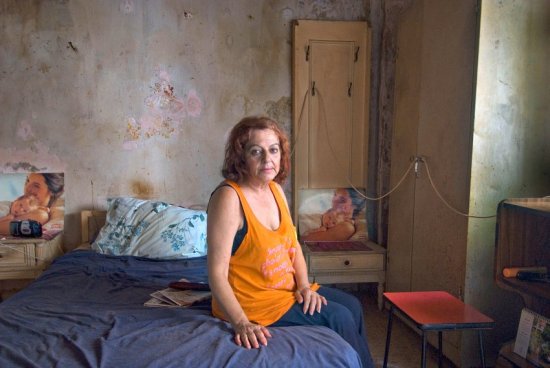
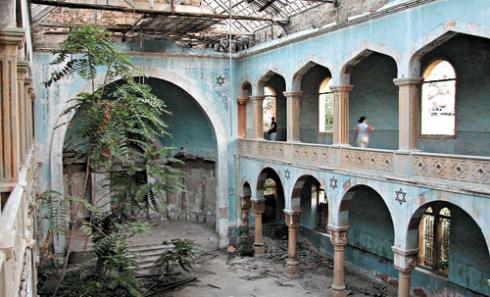




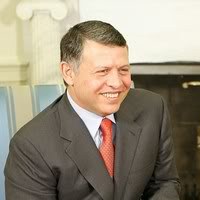
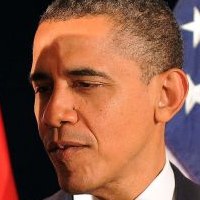




Lebanon's Jewish Community #lebanon #israel http://j.mp/9zGLxW
RT @CrethiPlethi: Lebanon's Jewish Community #lebanon #israel http://j.mp/9zGLxW
[…] This post was mentioned on Twitter by Elisabeth, Crethi Plethi. Crethi Plethi said: Lebanon's Jewish Community #lebanon #israel http://j.mp/9zGLxW […]